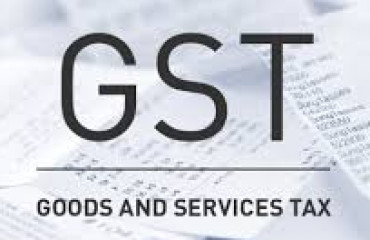
The Central Board of Indirect Taxes and Customs set 1 October 2024 as the date for implementing the penalty regime for the pan masala industry for any violation in registering their machinery. A penalty of ₹1 lakh per machine has been imposed to deter tax evasion
- The Central Board of Indirect Taxes and Customs set 1 October 2024 as the date for implementing the penalty regime for the pan masala industry for any violation in registering their machinery. A penalty of ₹1 lakh per machine has been imposed to deter tax evasion
New Delhi: Makers of pan masala will face a new penalty regime, the Central Board of Indirect Taxes and Customs (CBIC) said, moving against an industry that is known for tax evasion.
The CBIC set 1 October 2024 as the date for implementing the penalty regime for the pan masala industry for any violation in registering their machinery.
A penalty of ₹1 lakh per machine has been imposed to deter tax evasion. The authorities want to keep a close check on the actual production capacity of the unit and the quantity reported in the tax returns so that there is no underreporting of the quantity of products sent to the market.
As per the amendment to the law introduced earlier this year, a producer of items like pan masala and gutka who are subject to a special regime of registration of machines will be liable to a penalty of ₹1 lakh for every machine used that is not registered.
The provision was introduced as the government found that this sector is prone to tax evasion.
CBIC also said in an order that head offices of businesses that procure services for their different branches and distribute the applicable tax credits among those branches—called input service distributors—will have the new regime effective from 1 April 2025.
Also Read: New reporting regime for pan masala from 15 May
The Finance Act, passed on 15 February this year had amended the Central GST Act to streamline the way businesses distribute the tax credit for services purchased at the head office level, among their units in different states. Under GST law, units in different states require different GST registration.
The head office procuring services on behalf of the branches, receives the invoice and distributes the credit for the taxes paid, among its different branches and are called the input service distributor.
Also Read: Pan masala, gutka, and similar tobacco product makers to face ₹1 lakh penalty, if…
The law was amended as recommended by the GST Council last year to clarify and streamline the distribution of tax credits within the organisation.
The Council had last July recommended the procedures for distributing the tax credit for the services purchased from a third party, that is attributable to both the head office and branch office or exclusively to one or more branch offices.
Abhishek Jain, indirect tax head and partner at KPMG, described the advance notice given for implementing the input service distributor rules as "reasonable."
"It is commendable that the government has provided a reasonable period for the implementation of ISD provisions, allowing companies sufficient time to prepare thoroughly. Now, businesses should begin to strategically gear up to ensure timely compliance readiness, including enhancing IT capabilities to conduct thorough testing before the go-live date," said Jain.
